Here is the final part of my 5 point plan and in many ways is the most important as without it the others are more likely to fail. It is planning! Planning is crucial to success because it takes the day to day decision making away.

For example, if you make a meal plan for the week and use that as a shopping list there are multiple benefits.
Firstly, you know what you need in the supermarket so it saves time and money (no spending on random items that end up getting thrown away) and it helps ensure you have all you need when it comes to cooking.
Secondly, you know what to cook on a given day, no more staring at the fridge wondering what to eat. It's also useful to batch cook on some days, maybe at the weekend if you have more time, so that during the week there is an easy and healthy option that just needs to be got out of the fridge or freezer. This also helps to avoid the temptation of takeaways!
The same principles apply to self care, sleep and movement - planning them makes them more likely to happen. If you schedule a walk with a friend you are more likely to get moving than vaguely saying to yourself ‘I ought to move more’.
None of us have unlimited amounts of will power: with planning you won't need so much of it! But if you need someone to help to hold you to your plans, book in to chat with me and we can work toward better health together. Just click the blue button at the top right of this page to get started.
Moving more is something that many of us need to do, including me. If you follow me on Instagram (@rachelpagenutrition) you might know that I began Couch to 5k at the start of November as my way of moving more given my job is largely desk based. I’m now on week 5 and am halfway through the programme.
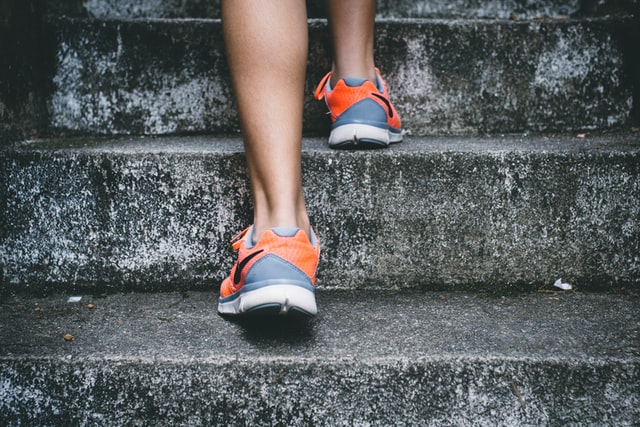
It’s not always easy to get out of bed to put on my trainers but I know that keeping active is important for many reasons: to maintain heart health, to retain muscle mass that can melt away as we get older if muscles are unused or to help keep weight under control. But moving more doesn’t necessarily mean running. Activities including swimming, gardening or dancing all count and choosing to cycle or walk some or all of the times when you might otherwise drive is helpful too.
And as we get older to prevent that loss of muscle mass it can be helpful to do some weight bearing exercise whether in the gym, by using tins as weights at home or just using your own bodyweight as resistance. Whatever you choose to do, adding something small to your routine on a regular basis will bring you benefits in terms of strength, stamina and mental health.
The third part of this series on my 5 point plan is thinking about stress and self care. It is impossible to avoid stress completely but we can try to mitigate its effects on our health by practicing both self-care and self-compassion.

Taking time out every day to do something just for you is really important. And I know it's not always easy to fit in but even 10 minutes a day can make a difference, whether that’s a dance around the kitchen to your favourite music, a moment of meditation or reading a chapter of a book. If you have a bit more time a walk or other movement can be great or maybe have a chat with a good friend.
I’d also like you to think about the sorts of things you might say to that friend and compare it to how you talk to yourself. Often we talk to ourselves in a much harsher way than we would talk to other people. We tell ourselves that we should do better, or that we are useless but this is very stressful and will activate our stress response. Stress is closely linked to the sleep disturbances we looked at last time so being kinder to ourselves we can improve our health in many ways including improving sleep. Stress also helps to pile on the pounds around your middle, so by trying to manage stress there might be additional benefits in shifting any extra padding that might have crept on!
I love my sleep and I really notice the difference on the (fortunately) few occasions when I don’t sleep well.
We can all recognise the signs of being tired: being snappy and irritable with little energy. This can affect our health in many ways. If we are tired our body craves sweet food or carb based savoury foods as this helps to boost our energy levels. Unfortunately, it does this through giving a big boost to blood sugar levels which then come crashing back down an hour or two later, leaving us wanting more to eat - not a good pattern to get into. When we are tired we can also turn to coffee to keep us going which works in the short term by kicking our blood sugar again. But in the long term this is also not a great habit.
So what can be done to help our sleep which will then help us to make healthier choices the following day? That depends on why you are tired.
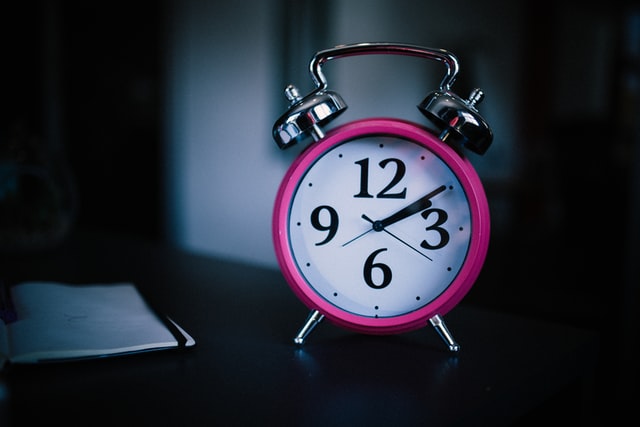
If you simply are not getting enough sleep because you don’t get to bed early enough then you probably already know the answer! Seeing sleep as an investment in both your physical and mental health can help. Maybe try going to bed half an hour earlier (give that extra episode on Netflix a miss tonight) and see how you feel.
Or maybe you wake up during the night? That might be because of drinking too much before you go to sleep. Too much coffee, alcohol or even water before bed can all disturb sleep for different reasons.
Or is your head spinning with the stresses of the day. In which case you might find reading or relaxing in a warm bath helpful. Or try writing down your thoughts so you don’t have to keep going over the same thing in your mind.
Trying to identify the cause of poor sleep can often help to find a solution so if sleep is something you struggle with, take a moment to think about why, and you might just feel better for it.
Following on from last week’s blog introducing the 5 ways to health in my signature plan This is the first of a series expanding on each of the 5 ways in turn.
Firstly, and no surprise for a nutritionist, I want to look at how choosing the right food for you can help you nourish your body and move you towards feeling great.
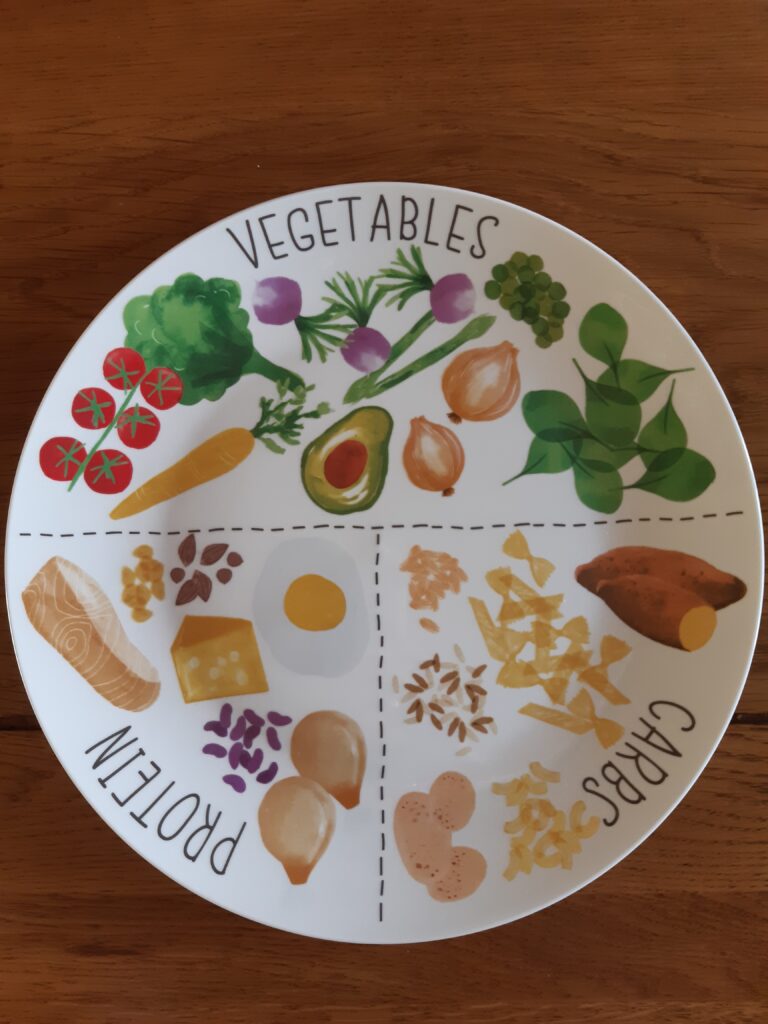
An easy way to think about how to plan your meals is to aim for a ‘balanced plate’. This means filling half of your plate with non-starchy veg such as broccoli, cauliflower, leeks, peas, tomatoes or cucumber.
Another quarter of your plate should be carbs, this can be starchy vegetables including sweet potato, carrots, parsnips and potatoes or whole grains including oats, brown rice or rye bread.
The final quarter should be protein whether from animal sources such as lean meat, fish, cheese and eggs or plant based sources including beans, pulses, tofu, nuts and seeds.
You should also make sure that some of your choices include healthy fats which can come from oily fish, olive oil, nuts, seeds and avocados.
By following this plate not only will you find it easy to reach the recommended 5 portions of veg a day but it will help keep you fuller for longer than if meals are largely based on carbs. This is because protein and fat take longer to digest than carbs. Also by having lots of veggies there will be plenty of fibre to fill you up and keep you regular! Other benefits can include better blood sugar control, which helps avoid cravings, and better weight management.
To get more ideas on how to reach your ideal, healthy weight don't forget to download my free ebook from the home page.
14 November marks World Diabetes Day and this year is celebrating 100 years since the discovery of insulin by Canadian doctors Frederick Banting and John Macleod. This life-saving discovery earned them the Nobel Prize for Medicine. Injecting insulin is still used today as the only treatment for type 1 diabetes. It can also be used for type 2 diabetes if the disease has progressed to reduce pancreatic production of insulin. However, there can be complications in using insulin such as the increased risk of dangerously low blood glucose levels which may prevent some from driving. Some people may find the process of injecting insulin unpleasant.
But don’t forget that you have the power to make changes to your diet and lifestyle that can help you lose weight and get type 2 diabetes under control through these 5 ways:
Eat the right foods for you
Move more
Get enough sleep
Practice self care
And the one that makes the above possible: PLAN

So while we celebrate the amazing work of Banting and Macleod, you too can make an amazing difference to your health. If you want to find out more about how I can support you to achieve the five ways to better health click here for a chat. https://bit.ly/3lT20Kw
For Bonfire Night here's a warming recipe that you can leave in the oven while you enjoy the fireworks. Sausages aren’t something that shouldn’t be an everyday food as high consumption of processed meat is known to contribute to cancer. However, you can still enjoy them as an occasional treat with this recipe packed with vegetables and pulses. Serves 4.

6 good quality sausages (halved)
2 large onions cut into wedges
2 sweet potatoes in 2cm cubes
2 peppers (red/yellow/orange) in 2cm chunks
4 cloves of garlic, roughly chopped
Tin of chickpeas or cannellini beans (drained)
Tin of chopped tomatoes
Herbs or spices to taste (rosemary, thyme and sage work well or try a finely chopped red chilli)
Add any other veggies you fancy (courgette, aubergine, squash, leeks, kale etc)
Mix all the ingredients in a large roasting tin and bake (200oC) for around an hour.
Which will give you plenty of time for waving a sparkler in the cold.
Beautiful, local apples are coming into peak season right now and there are many reasons that an apple a day keeps the doctor away. Apples are a source of vitamin C for immunity and skin health. They have fibre to help keep your digestion happy. And they contain less sugar than some other fruits so they can help keep blood sugar levels under control. We should all eat at least 5 portions of vegetables and fruit a day of which no more than 2 should be fruit.
Here's a simple recipe for baked apples that shows off the humble apple and counts as one of your 5-a-day.
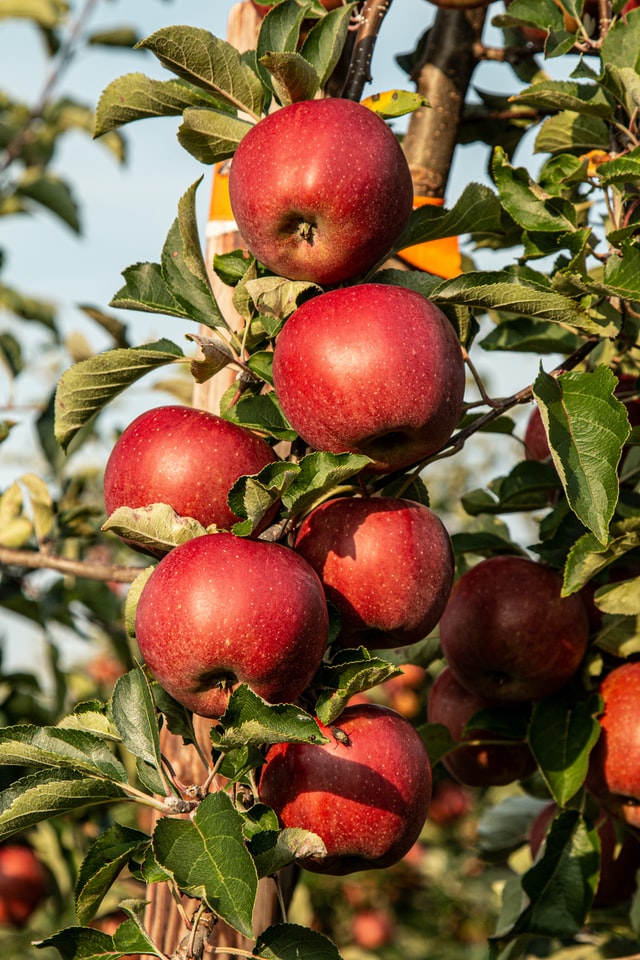
Core an apple and score through the skin like the equator on a globe.
Place on a baking tray and fill the hole with sultanas or raisins with a little bit of cinnamon mixed in.
Drizzle a teaspoon of honey over the raisins and add a small knob of butter on the top.
Bake in the oven (200oC, gas 6) for 20-30 minutes until cooked though.
When my clients come to me for support with their health issues there is usually more than one thing going on. Many people, whether diabetic or not, have been told by their GP that they have high cholesterol and as October is National Cholesterol Month, let's talk about it.
Cholesterol occurs naturally in the body and is essential for the building of cell walls, the production of a variety of steroid-based hormones and it helps to digest dietary fats via bile production. So some cholesterol is essential and our liver makes most of what we need. The liver packages up cholesterol into parcels, called lipoproteins, to be transported in the blood.
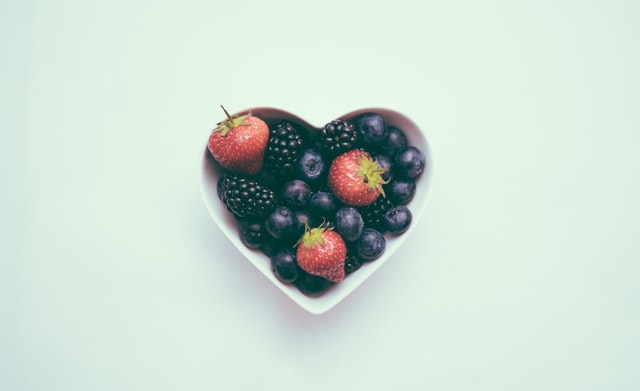
There are two main types of lipoproteins: Low density lipoproteins (LDL) which deliver cholesterol from the liver to the cells where it is needed and high density lipoproteins (HDL) which take cholesterol back to the liver. To help avoid the complications of cardiovascular disease, getting the balance of LDL and HDL right is key.
Avoiding cholesterol in food has been found to have very little effect on the levels in blood, instead reducing saturated fat and increasing fibre through eating lots of veg has been shown to improve cholesterol levels and the balance of LDL and HDL. Having sufficient vitamin D (everyone needs to supplement vitamin D through the winter months) and eating oily fish, nuts and seeds for omega-3 oils is also great for heart health. Because alcohol and cholesterol are both processed in the liver, keeping within the recommended limit of 14 units of alcohol a week will allow the liver to perform its cholesterol function properly.
Luckily, the way to help achieve healthy cholesterol is similar to how to manage type 2 diabetes. So you can be healthy all round!
If you could avoid dying early, losing your sight, having a stroke, heart attack or kidney failure would you want to? I’m guessing that no-one wants these things to happen to them but according to research by Diabetes UK (https://www.diabetes.org.uk/about_us/news/1-10-adults-living-diabetes-2030) these complications from diabetes will be much more common in the coming years. By 2030 as many as 5.5 million people in the UK will have diabetes, with over 10 million more at risk of developing type 2 diabetes and facing these devastating potential consequences.
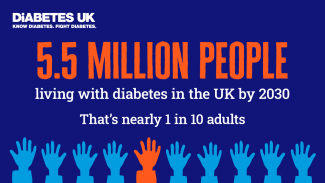
If you want to avoid being someone who faces these risks, either now or in the future, there is plenty you can do now to help prevent them. Achieving a healthy weight for you, being active, managing stress and eating the right foods (think protein and veggies whilst reducing the cakes and fizzy drinks) can all help to reduce the risks.
If you want to know more, download my free ebook which has some fabulous information to help you or book a chat with me to see how we could work together to improve your health. It's never too early or too late to get better control of your health and reduce your risks of these consequences of diabetes: get in touch now using the button at the top of the page.

